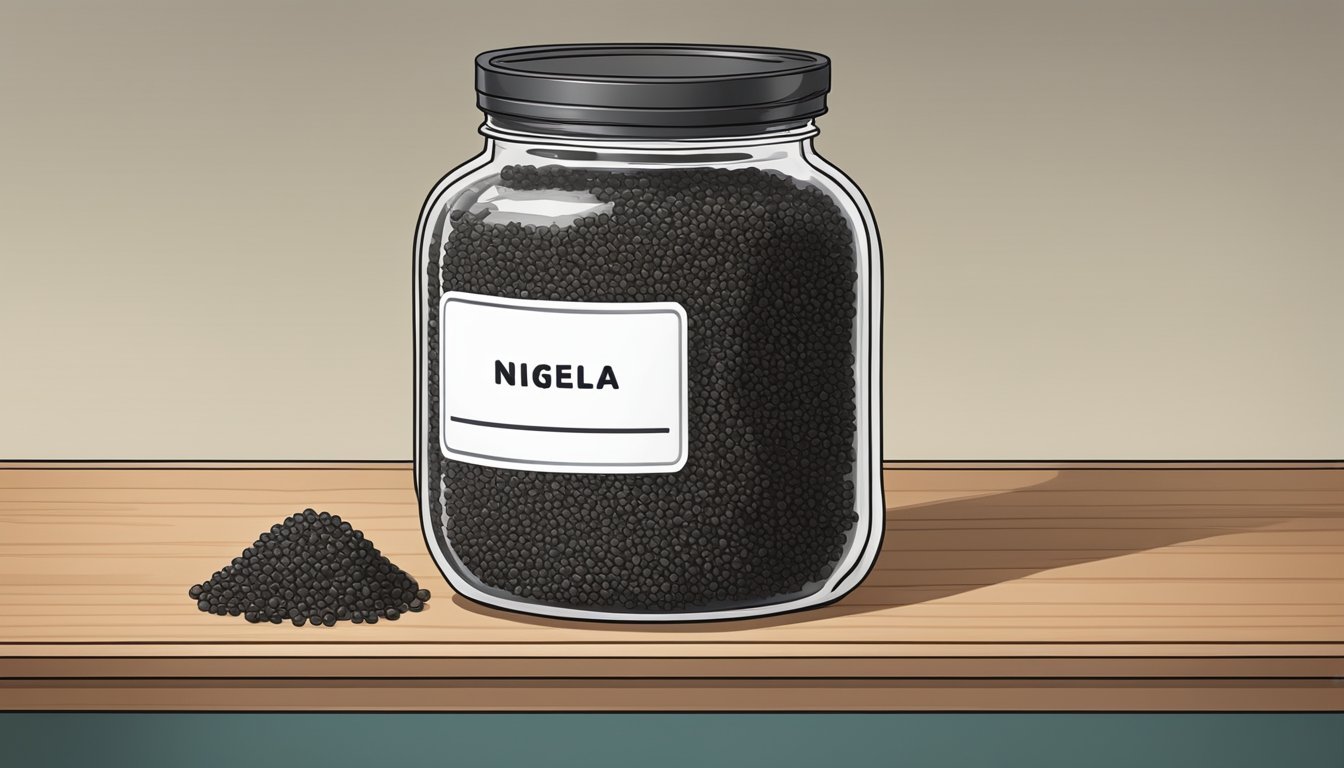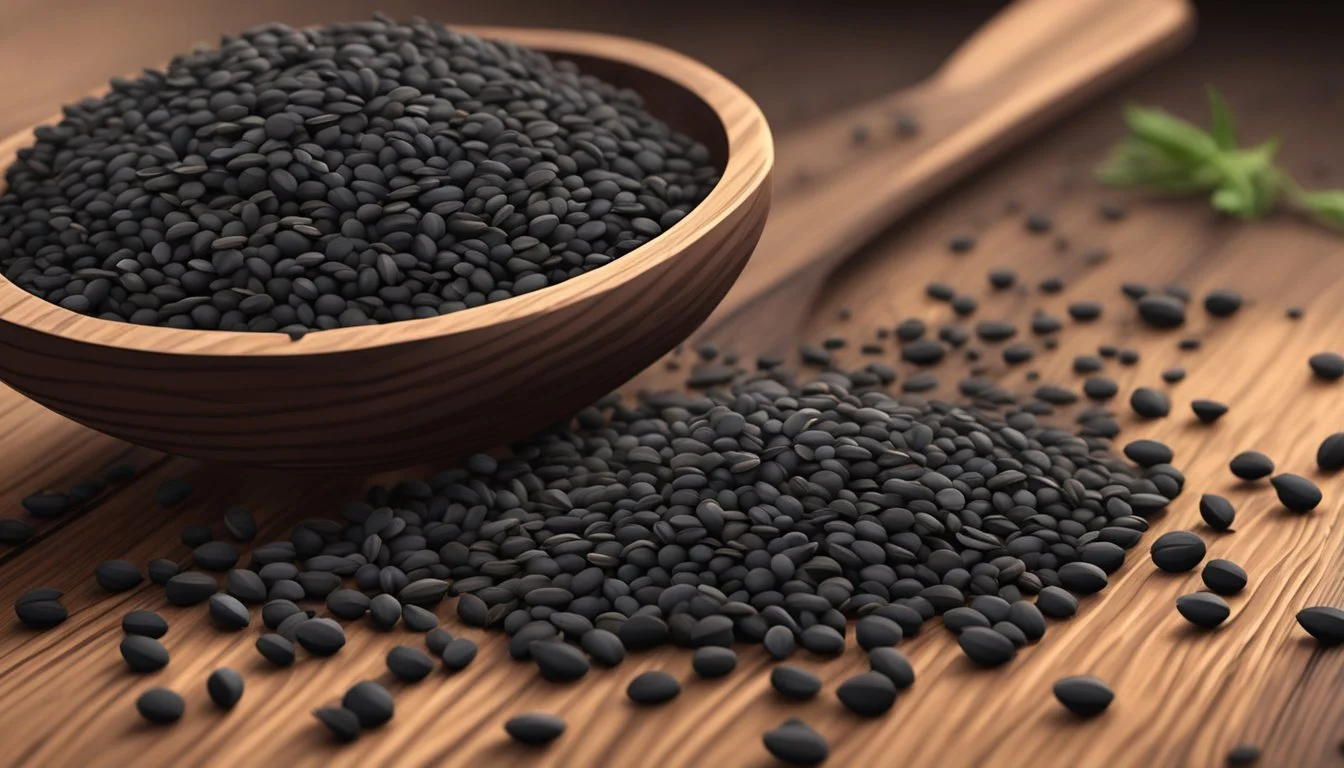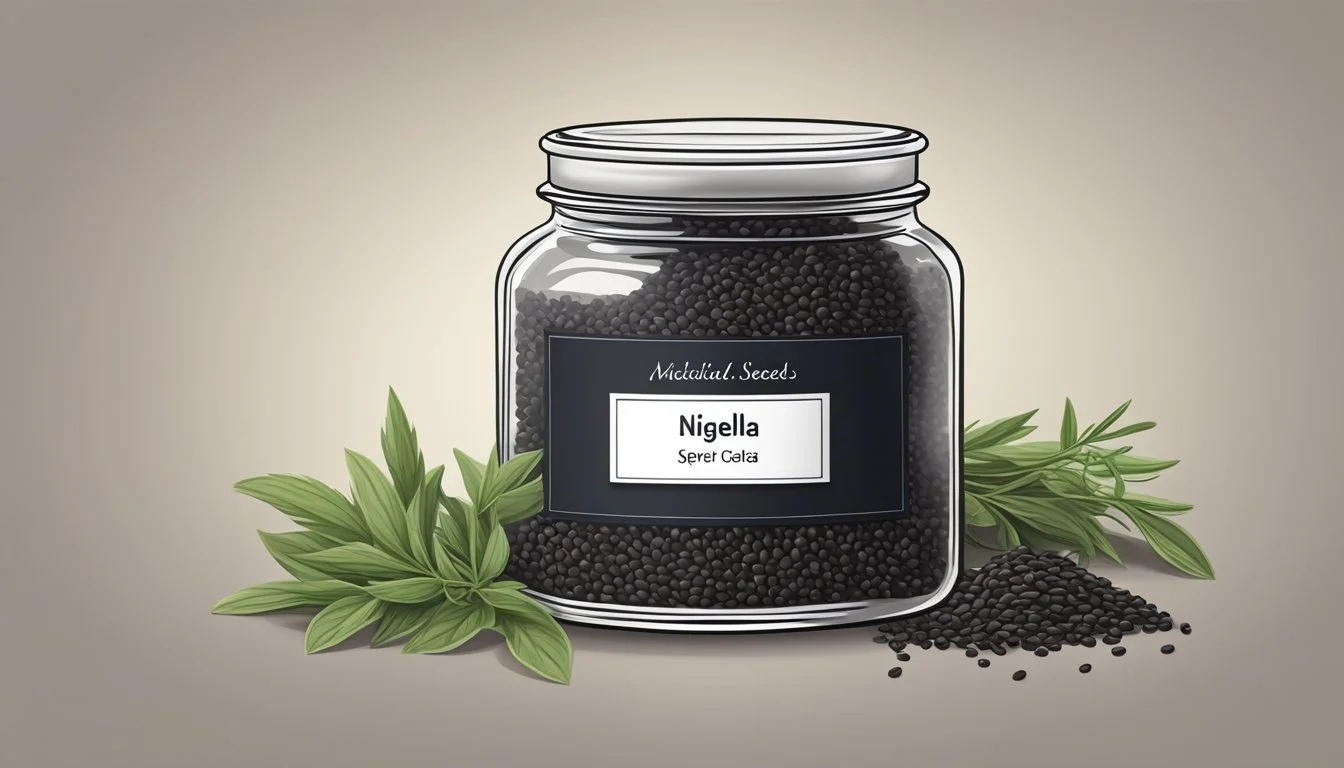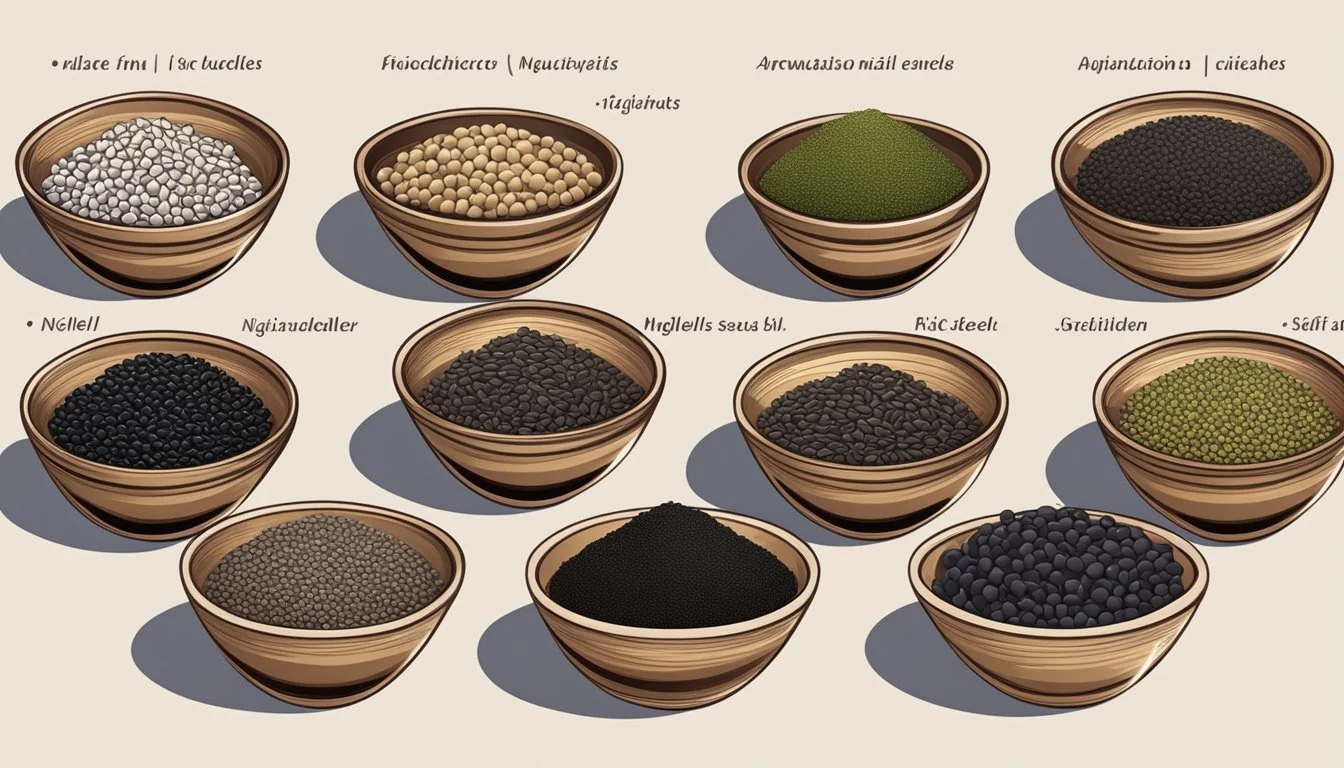Does Nigella Seeds Go Bad?
Shelf Life and Storage Tips
Nigella seeds, also known as black seeds or kalonji, are tiny black grains that pack a punch when it comes to flavor and health benefits. Frequently used in various cuisines, they can add an earthy, slightly bitter taste to salads, stir-fries, and curries. But do nigella seeds go bad? Yes, like most spices, they can lose their potency over time.
Stored correctly, nigella seeds can maintain their quality for several years. They should be kept in an airtight container, away from direct sunlight and moisture. Their flavor and aromatic properties diminish as they age, though they rarely spoil in a way that poses a health risk.
For those who enjoy the unique taste and health benefits, rotating your stock and using them within a couple of years ensures the best culinary experience. This simple practice helps you savor the maximum flavor and nutritional value that nigella seeds have to offer.
Nigella Seeds Overview
Nigella seeds, also known as black seed or black cumin, are renowned for their distinctive flavor and numerous health benefits. They are widely used in various cuisines and have a rich nutritional profile.
Origin and Types
Nigella seeds originate from the plant Nigella sativa, which is native to the Middle East and South Asia. Known by various names such as black cumin, kalonji, and black seed, these tiny seeds have been used for centuries in traditional medicine and cooking. They are widely cultivated in countries like India, Pakistan, and Egypt. Their unique slightly bitter flavor makes them a staple in many regional dishes, especially in Bengali and Indian cuisines.
Nutritional Profile
Nigella seeds are a powerhouse of essential vitamins and minerals. They are rich in calcium, iron, zinc, copper, thiamin, niacin, phosphorus, and folic acid. These nutrients contribute to the seeds' antioxidant properties.
A table of key nutrients:
Nutrient Content Calcium High Iron High Zinc Moderate Copper Moderate Thiamin Moderate Niacin Moderate Phosphorus High Folic Acid High
Packed with antioxidants, nigella seeds help in combating oxidative stress and inflammation.
Culinary Uses
Nigella seeds are versatile and can be used in various ways to enhance the flavor and texture of dishes. They are commonly used in bread, such as naan, providing a unique crunch and taste. In South Asian cuisines, they are often included in spice blends like panch phoron and are used to season curries, vegetables, and rice dishes.
Common culinary applications:
Toasted and sprinkled over salads
Ground into a powder and mixed into doughs or batter
Added to yogurt or cheese for a distinctive flavor
Their slightly bitter, peppery taste adds depth and complexity to many recipes.
Health Benefits and Medicinal Uses
Nigella seeds, also known as kalonji or black cumin, offer multiple health benefits due to their antioxidant and anti-inflammatory properties. They are used traditionally and in modern medicine to treat various diseases such as diabetes, heart diseases, and high blood pressure.
Traditional and Modern Applications
Nigella seeds have a rich history in traditional medicine. They were used for ailments like bronchitis, diarrhea, and inflammation. Modern applications include using black seed oil and powder to manage conditions such as diabetes and high blood pressure. People believe that Nigella seeds boost the immune system, improve liver function, and enhance overall well-being.
Scientific Research on Nigella Sativa
Numerous studies back the health benefits of Nigella sativa. Researchers have found that thymoquinone, a primary compound, exhibits powerful antioxidant and anti-inflammatory effects. Evidence suggests that Nigella sativa can help control blood sugar levels, reduce LDL cholesterol, and boost HDL cholesterol. Studies also indicate potential anti-cancer properties.
Potential Side Effects
While Nigella seeds are largely safe for most people, they can have side effects. Some users experience allergic reactions or digestive issues. Excessive consumption may lead to toxicity. Pregnant women should avoid high doses due to uterine contractions. Always consult a healthcare provider before adding Nigella seeds to your regimen.
Usage and Consumption Tips
Incorporate nigella seeds into a variety of dishes such as curries and salads. These seeds can be consumed in different forms including raw, toasted, or ground, and even as supplements.
Incorporating Nigella Seeds in Diet
Nigella seeds are versatile and add depth to both Middle Eastern and Indian cuisines. Raw nigella seeds can be sprinkled over salads to add a satisfying crunch. They are often used in curries to introduce a unique piquancy.
Toasting the seeds in a dry skillet releases their aromatic properties, making them ideal for stir-fries and roasted vegetables. Consider adding ground nigella seeds to marinades or spice blends to enhance the flavor profile. Black seed oil is another popular form, widely used as a condiment or dressing for salads and cooked dishes.
Recommended Dosage
For those opting for black seed oil, the recommended dosage is often 100-200 milligrams twice daily for up to eight weeks. In powdered form, a suggested intake is 0.5-2 grams daily for up to 12 weeks. When aiming to improve sperm function, 2.5 mL of black seed oil twice daily for two months is common.
Supplements, such as capsules containing black seed extract, are also available. Always adhere to the dosage instructions provided by the manufacturer, as excessive intake may lead to adverse effects. Consuming the seeds in moderation ensures the best balance of nutritional benefits without potential risks.
Storage and Preservation
Nigella seeds, known for their health benefits and culinary uses, can maintain their potency and flavor with proper care. This section details the shelf life and optimal storage methods to ensure they remain fresh and effective.
Shelf Life of Nigella Seeds
Nigella seeds, when stored properly, can last for one to two years. Their longevity depends on factors such as exposure to moisture, air, and temperature fluctuations.
Exposure to water can promote mold growth, while air can cause oxidation, reducing their potency. To maximize their shelf life, it's essential to protect them from these elements.
Proper Storage Techniques
Dry Storage:
Cleaning: Ensure seeds are clean and completely dry.
Airtight Containers: Transfer seeds to an airtight container to shield them from moisture and air.
Temperature: Store in a cool, dark place, ideally below 70°F (21°C).
Freezing:
Preparation: Ensure seeds are dry.
Packaging: Use freezer-safe, airtight bags or containers.
Labeling: Label with the date of storage to track shelf life.
These techniques will help maintain the freshness and health benefits of nigella seeds.
Nigella Seeds in Different Cultures
Nigella seeds are used in many culinary traditions, from the Middle East to India, contributing their unique flavor to various dishes. These tiny black seeds, known scientifically as Nigella sativa, are versatile in different cultural cuisines.
Middle Eastern Traditions
In the Middle East, nigella seeds are often referred to as black onion seeds or black cumin. They are a common ingredient in flatbreads such as naan and pita.
Middle Eastern cooks use nigella seeds to enhance salads, stews, and soups. The slight bitterness and crunch add depth to many dishes. In some regions, they are also used in pickled vegetables, adding a distinctive sharpness.
Nigella seeds play a role in traditional herbal remedies, believed to offer various health benefits. Their use in the Middle East dates back centuries and they are part of the familiar flavor profile of the region’s cuisine.
Indian and Asian Culinary Uses
In India, nigella seeds are commonly known as kalonji. They are a staple in many Indian dishes, including the spice mix called panch phoron, used widely in Bengali cooking.
These seeds are often mixed into traditional naan bread, creating a nuanced flavor. They are also sprinkled on top of curries and stir-fries, imparting their distinctive taste and crunch.
In Asian cuisines beyond India, nigella seeds can be found in vegetable dishes and rice preparations. They are a key component in adding subtle piquancy and complexity to various culinary creations.
Nigella seeds, part of the Ranunculaceae family, are also known by other names, such as fennel flower or black sesame seed, in some cultures. This highlights their widespread use and integration into diverse culinary traditions.







